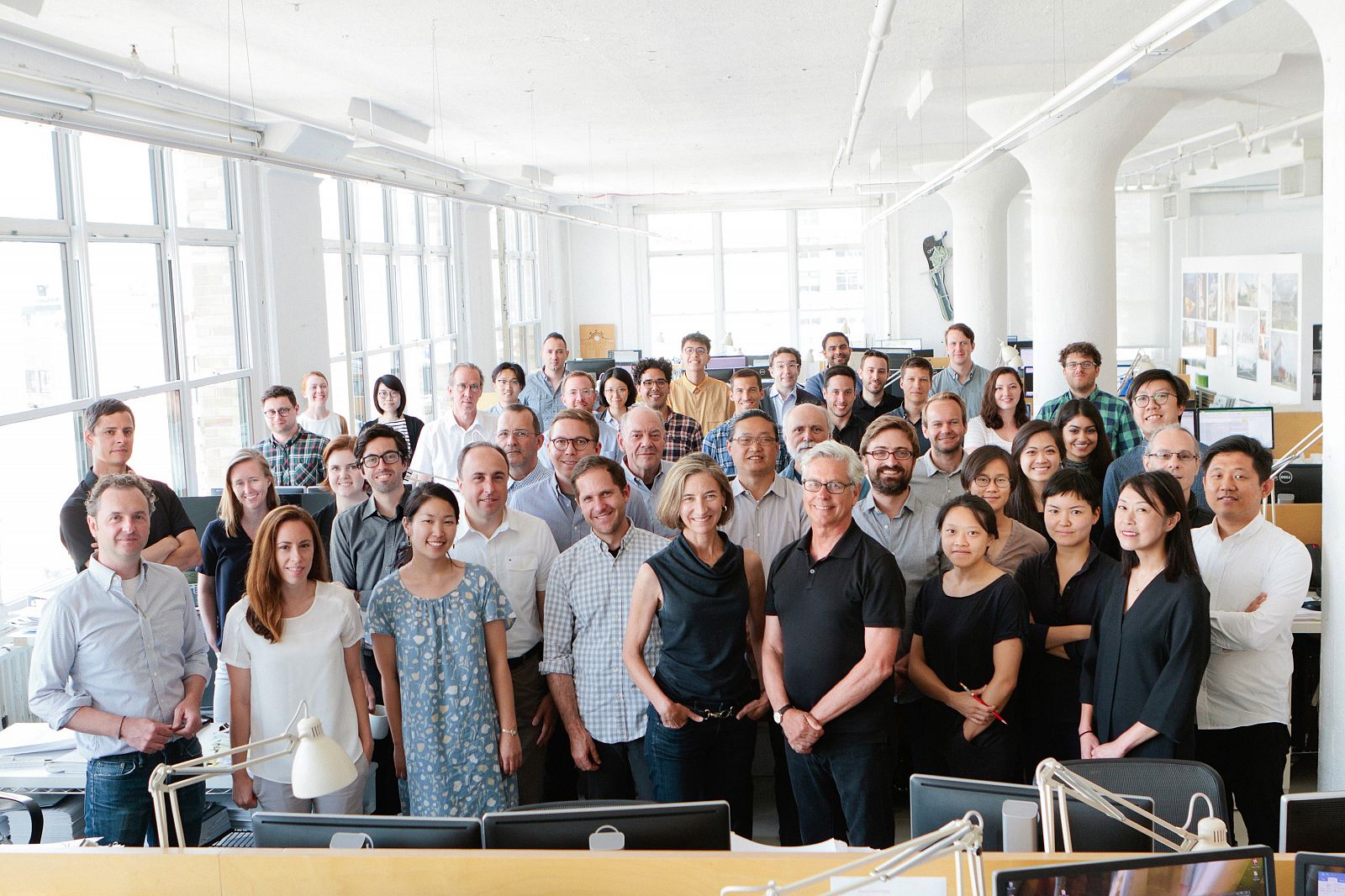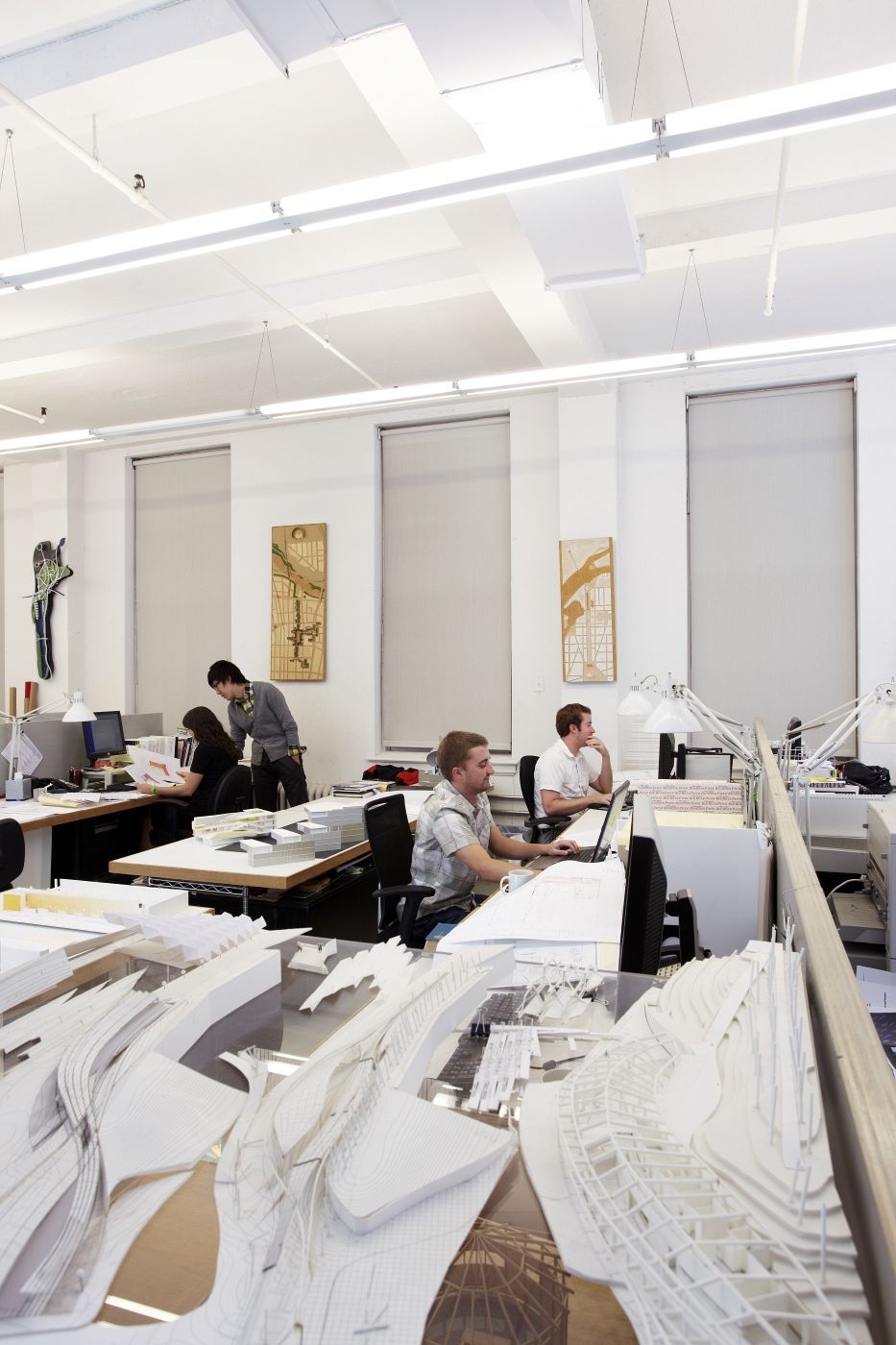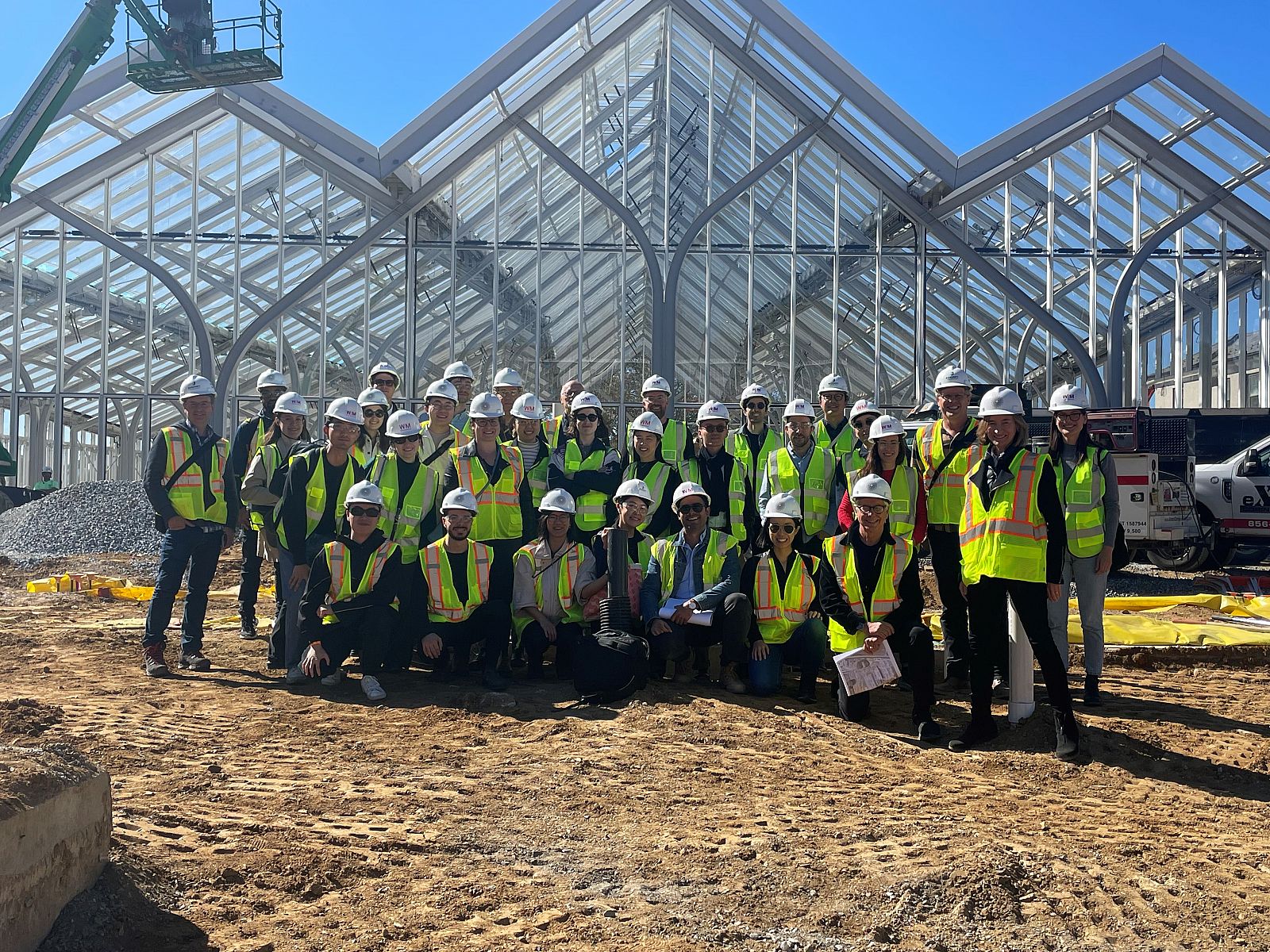Firm Profile
WEISS/MANFREDI Architecture/Landscape/Urbanism is at the forefront of architectural design practices that are redefining the relationships between landscape, architecture, infrastructure, and art.
WEISS/MANFREDI received the 2024 Louis I. Kahn Award, the 2020 Thomas Jefferson Foundation Medal in Architecture and the 2018 Cooper Hewitt Smithsonian Institution's National Design Award, as well as the New York AIA Gold Medal and the Academy Award in Architecture from the American Academy of Arts and Letters. In 2019, WEISS/MANFREDI was selected through an international competition to re-envision the world renowned La Brea Tar Pits and Museum in Los Angeles, and the Trinity Park Conservancy in Dallas selected the firm to serve as design architects to bring new life to the former Jesse R. Dawson State Jail. Most recently WEISS/MANFREDI was selected as design lead with Hood Design Studio to reimagine the West Side of Lincoln Center Campus in New York City.
The firm has spearheaded various design efforts that require progressive ecological and infrastructural frameworks, placing environmental stewardship and sustainability at the core of WEISS/MANFREDI's work. These frameworks support the public-facing nature of the practice’s work, seen in projects like the Seattle Museum of Art's Olympic Sculpture Park, the Brooklyn Botanic Garden Visitor Center, Hunter's Point South Waterfront Park, and the Krishna P. Singh Center for Nanotechnology at the University of Pennsylvania. Other built works include the Barnard College Diana Center, Yale University's Tsai Center for Innovative Thinking, the Tata Innovation Center at Cornell Tech, the Museum of the Earth, and the Women's Memorial and Education Center at Arlington National Cemetery. WEISS/MANFREDI's current projects include Longwood Reimagined, the Tampa Museum of Art expansion, NJPAC Cooperman Family Arts Education and Community Center in Newark, NJ, the U.S. Embassy in New Delhi, India, and Lincoln Center’s new outdoor theater in New York City. Most recently, the firm won the international competition for the addition and renovation to the Nelson-Atkins Museum of Art in Kansas City, Missouri, which attracted submissions from over 180 firms from thirty countries on six continents.
The firm has won numerous awards and competitions and has been featured in exhibitions at the Venice Architectural Biennale, the Museum of Modern Art (MoMA), the São Paulo Biennale of International Architecture and Design, the Shanghai Biennale, the Cooper Hewitt, Smithsonian Design Museum, the National Building Museum, Harvard University, the Landscape Architecture Biennale in Barcelona, the Design Centre in Essen, Germany, and the Guggenheim Museum. Weiss and Manfredi’s work is in the permanent collection of MoMA, the Seattle Art Museum, the Library of Congress, and the Cooper Hewitt, Smithsonian Design Museum. Five monographs on the firm’s work have been released; the most recent, Drifting Symmetries: Projects, Provocations, and Other Enduring Models, was published by Park Books in Winter 2025.




